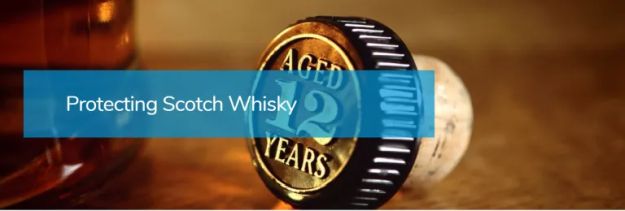Our Associate, Nikita Lakhani discusses "'Spirit' of Law on protecting the Well-known GI-Scotch Whisky"
Recently, the Delhi High Court in Scotch Whisky Association v Unibev Limited, granted an interim injunction in favour of plaintiff for infringement of its registered Geographical Indication ("GI"), "Scotch Whisky".

The plaintiff, an association incorporated with the object of protecting and promoting interests of Scotch whisky trade, stated that Scotch Whisky, a world-renowned GI for whisky produced in Scotland, is the subject of Registration No. 151 in Class 33 of the Geographical Indication of Goods (Registration & Protection) Act, 1999 ("GI Act").
The plaintiff contended that any whisky which is not Scotch Whisky, if sold or advertised bearing an indication or reference to Scottish origin, is likely to mislead members of trade and public while also violating the plaintiff's statutory and common law rights in the GI.
The plaintiff also submitted that whiskies with a higher age statement command a higher price and use of misleading age statements on whiskies violates the Scotch Whisky Regulation, 2009, while also being an act of unfair competition and infringement under the GI Act.
The plaintiff averred that the defendant was wrongfully advertising and selling its blended scotch whisky called "STROTTS" with the phrase "Product of Scotland" and using misleading statements in relation to the maturation age of whisky, such as "Blended with upto 18-year-old Scotch and Matured Indian Malts". The plaintiff contended that the acts of the defendant are violative of both the GI Act and the Food Safety & Standards Act, 2006 and constitute false trade description within the meaning of Sections 2(1)(za) and 2(1)(i) of the Trademarks Act, 1999.
On the other hand, the counsel for defendant raised questions regarding the jurisdiction of the suit and stated that the plaintiff has been unable to satisfy the court as to what provisions bar the defendant from representing the age of blended Scotch as depicted on defendant's labels.
The court, after hearing the contentions of both the parties, held that, prima facie, the phrase used on the labels indicating the maturation age of the whiskeys may deceive an unwary customer of average intelligence.
The court, on the basis of the above findings, concluded that this is an attempt by the defendant to pass off their scotch as that of a higher aged blend. Accordingly, based on the above, the Court granted an interim injunction directing the defendant to mention the minimum age of the scotch whiskey that has been blended with the Indian malts on its labels, advertisements, etc.
The above noted order reiterates the protection of Scotch Whisky as a Geographical Indication while also regulating labels of spirits by directing that the youngest age of the spirit should be depicted on the bottle so as to avoid any confusion as to the age of the spirit.
The content of this article is intended to provide a general guide to the subject matter. Specialist advice should be sought about your specific circumstances.

